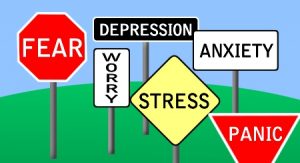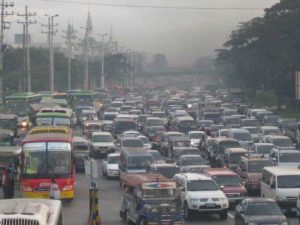Traffic Congestion is a serious urban problem that has negative impacts on individuals’ physical and psychological health. It causes not only delays, but also pollution and increased fuel consumption. Air pollution has become a serious barrier to the quality of life and even the health of urban populations.
Psychological factors:
In Manila, urban citizens are often stressed and frustrated as their time is wasted in traffic and in this case may result in late arrivals to meetings or employment causing loss of jobs or other disciplinary actions to be taken against them.

Environmental factors:
The most detrimental impact of traffic is its effect on the environment. For instance, throughout the day, vehicles are left idling for hours releasing greenhouse gases into the air, and increasing air pollution overtime.

(Air Pollution and Traffic in Metro Manila. Source of photo: CreativeCommons)
Conclusions:
Overall, increases in carbon emission as a result of traffic congestion contributes to global warming and it can cause more short-term and localized problems, such as smog, pollution, stress and increased respiratory problems in a community due to poor air quality.
References:
Evans, G.W. & Carrère, S. 1991, “Traffic congestion, perceived control, and psychophysiological stress among urban bus drivers”, Journal of Applied Psychology, vol. 76, no. 5, pp. 658-663.
Evans, G.W., Wener, R.E. & Phillips, D. 2002, “The Morning Rush Hour: Predictability and Commuter Stress”, Environment and Behavior, vol. 34, no. 4, pp. 521-530.
Hennessy, D.A. & Wiesenthal, D.L. 1997, “The relationship between traffic congestion, driver stress and direct versus indirect coping behaviours”, Ergonomics, vol. 40, no. 3, pp. 348-361.